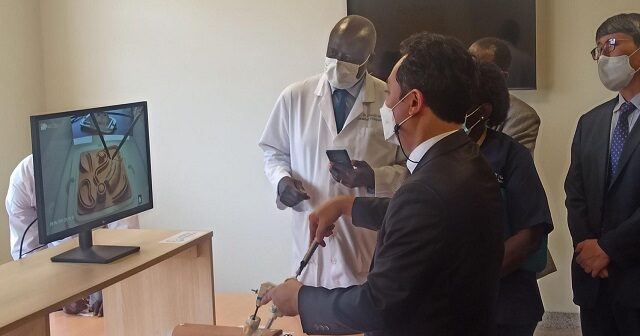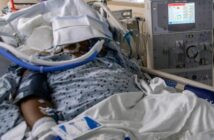Mulago National Referral Hospital has unveiled a non-invasive surgery simulation center, the first of its kind in the country. The hospital administrators say trainees will undergo training at the center on how to conduct minimally invasive endoscopies and laparoscopic surgeries.
During such procedures, equipment is inserted into the body through the mouth or small cuts to either carry out surgery or diagnose a disease. The KOICA-Mulago Minimally Invasive Surgery Simulation Center is located on the second flow of the hospital. The center was set up with support from the Korea International Cooperation Agency(KOICA).
With such training, doctors at the hospital will be able to carry out a series of surgeries and diagnostic operations using minimally invasive techniques. The technique can be used to carry out surgeries on the intestines, liver, pancreas, gall stones, and cancer of the bladder. Dr. Hyukjun Chung, a KOICA global doctor who is also training health workers on how to use the technology, says that the simulation center will enable students to get a better training experience.
“When we started we were training students on patients but we realized that there are limitations because you are dealing with a real patient. When you use a dummy or simulator we do not have any limitations to train the trainee. This is a good start for Ugandan doctors to start minimally invasive surgery efficiently,” he said.
The center has more than 10 endoscopic and laparoscopic towers or machines. Shillings 200 million is estimated to have been spent on procuring the training equipment. Dr. John Sekabira, the acting deputy director of Mulago National Referral Hospital, says that the center will enable the hospital to train more health workers in using new surgical technologies.
In addition to offering non-invasive surgeries, Dr. Sekabira says the simulation center will help Mulago hospital become the home of endoscopies. Since 2019 when the hospital began carrying out endoscopies, over 2,000 cases have been handled to date.
Dr. Jospehat Jombwe, the head of the gastrointestinal unit at Mulago hospital, says that the simulation center will enable the training of more health workers so that the services can be available at lower health facilities.
“We are trying to train a new cadre of surgeons so that we can cover the whole country with people who are able to do such operations,” he said. So far, 10 surgeons have been trained on these new technologies. On a monthly basis, an estimated 300 people in need of surgery are seen at the hospital.
*****
URN



